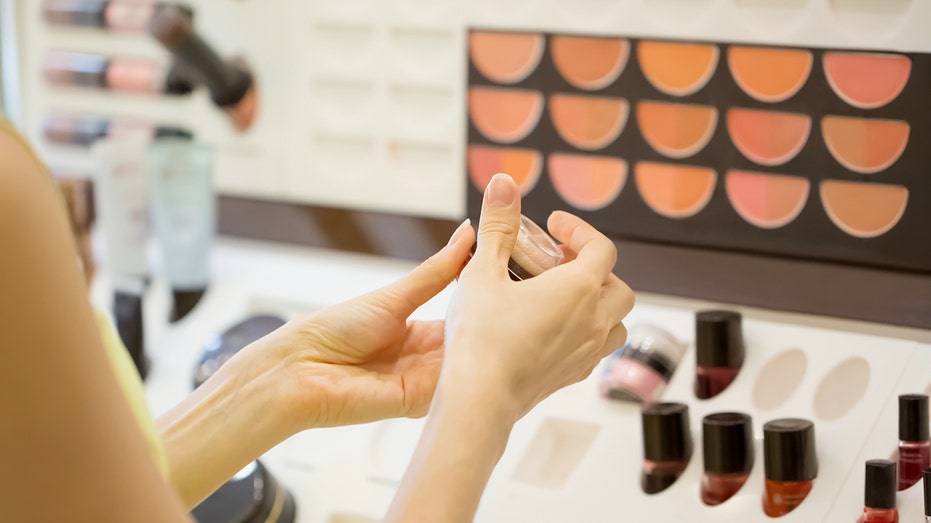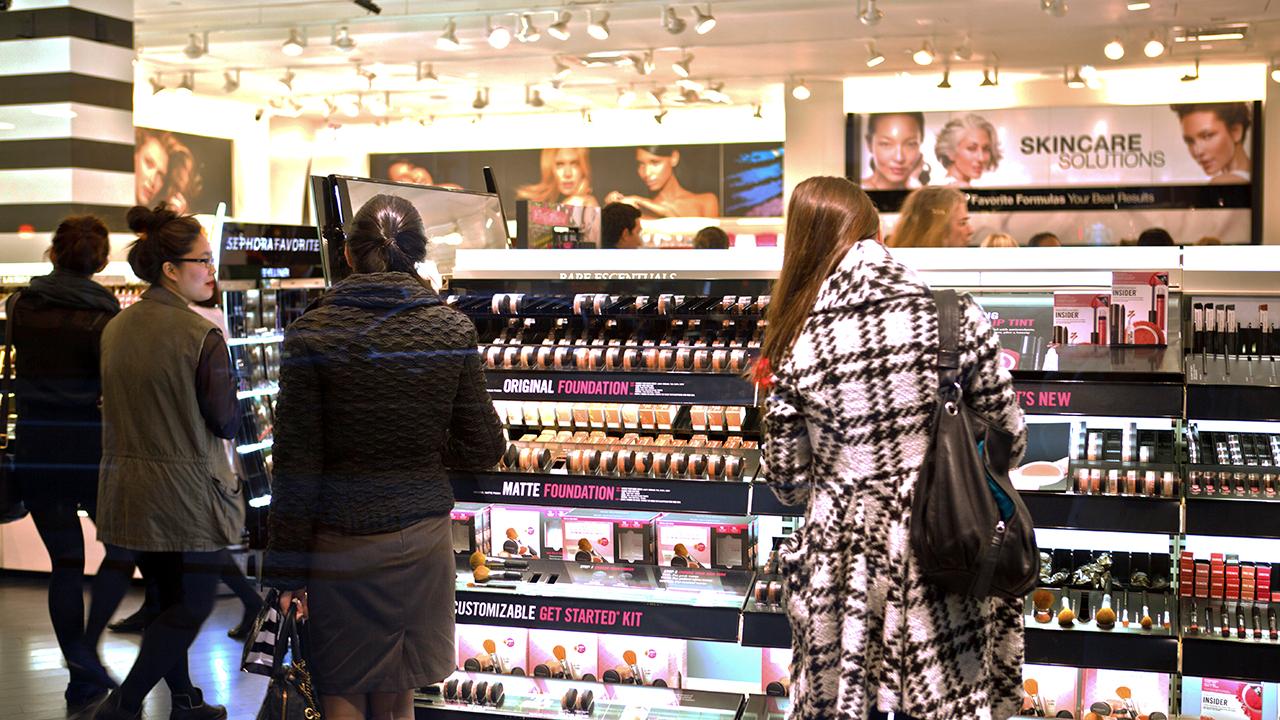Coronavirus-driven makeup, beauty sales decline expected to continue
Global beauty industry slated to lose up to 30% in revenue this year as result of pandemic
Beauty companies are going to have to make up for lost sales.
Cosmetics brands and stores have experienced one of the worst sales years as a result of retail closings and more people working from home and wearing masks during the coronavirus pandemic, new data suggests.

Beauty sales continue to decline with more Americans working from home and wearing masks or face coverings. (iStock)
The global beauty industry is slated to lose up to 30 percent in revenue this year, and in the U.S. the decline could be as much as 35 percent if the spread of COVID-19 continues to worsen, according to the latest data from management consultancy McKinsey & Company.
WHY SEPHORA IS THRIVING IN RETAIL APOCALYPSE
The report found consumers are spending less money on cosmetics compared to other discretionary purchases like clothing and footwear. And China is exhibiting tellings signs on future beauty sales declines. The country's beauty sales dropped up to 80 percent for the month of February around the time when the virus first broke out, compared with 2019, according to the data.
The sluggish sales have even some of the industry's biggest influencers putting cosmetics lines up for sale. Kim Kardashian West sold a stake in her namesake KKW cosmetics brand for $200 million to Coty, the same company that bought a majority stake in half-sister Kylie Jenner’s makeup and skin care line Kylie Cosmetics. The deal gives the company a value of $1 billion.
While e-commerce has been integral for consumers to get food and essential household items while sheltering in place during the pandemic, brick-and-mortar stores are more vital to the cosmetics industry since customers typically try on items like foundations and eye shadows before they buy them. But fears of getting sick coupled with less of a need to dress up seem to have halted growth, the report suggests.
KANYE CONGRATULATES WIFE KIM KARDASHIAN AFTER SELLING A SHARE OF BEAUTY BRAND
In-store shopping in most major beauty industries accounted for up to 85 percent of beauty product purchases before the coronavirus pandemic, according to the McKinsey report. And even tech-savvy younger millennial and Gen Z consumers made almost 60 percent of their purchases in stores, according to the data.
| Ticker | Security | Last | Change | Change % |
|---|---|---|---|---|
| LVMUY | LVMH MOËT HENNESSY LOUIS VUITTON SE | 127.325 | +0.61 | +0.49% |
| COTY | COTY INC. | 2.66 | -0.49 | -15.56% |
Indeed, before the pandemic hit in the U.S., Sephora, owned by LVMH, said in February it planned to open 100 stores this year, more than doubling its growth in 2012 with new locations in places like North Carolina and Tennessee, but openings could continue to be delayed.
SEPHORA REOPENING SOME STORES AFTER CORONAVIRUS CLOSURES WITH NEW LOOK
The beauty retailer began to reopen stores in May after being closed since March, restructuring retail stores across the country with heightened health and safety measures, including contactless payment methods, face masks and temperature checks for employees and eliminating testers to prevent customers from potentially getting sick.
CLICK HERE TO READ MORE ON FOX BUSINESS




















